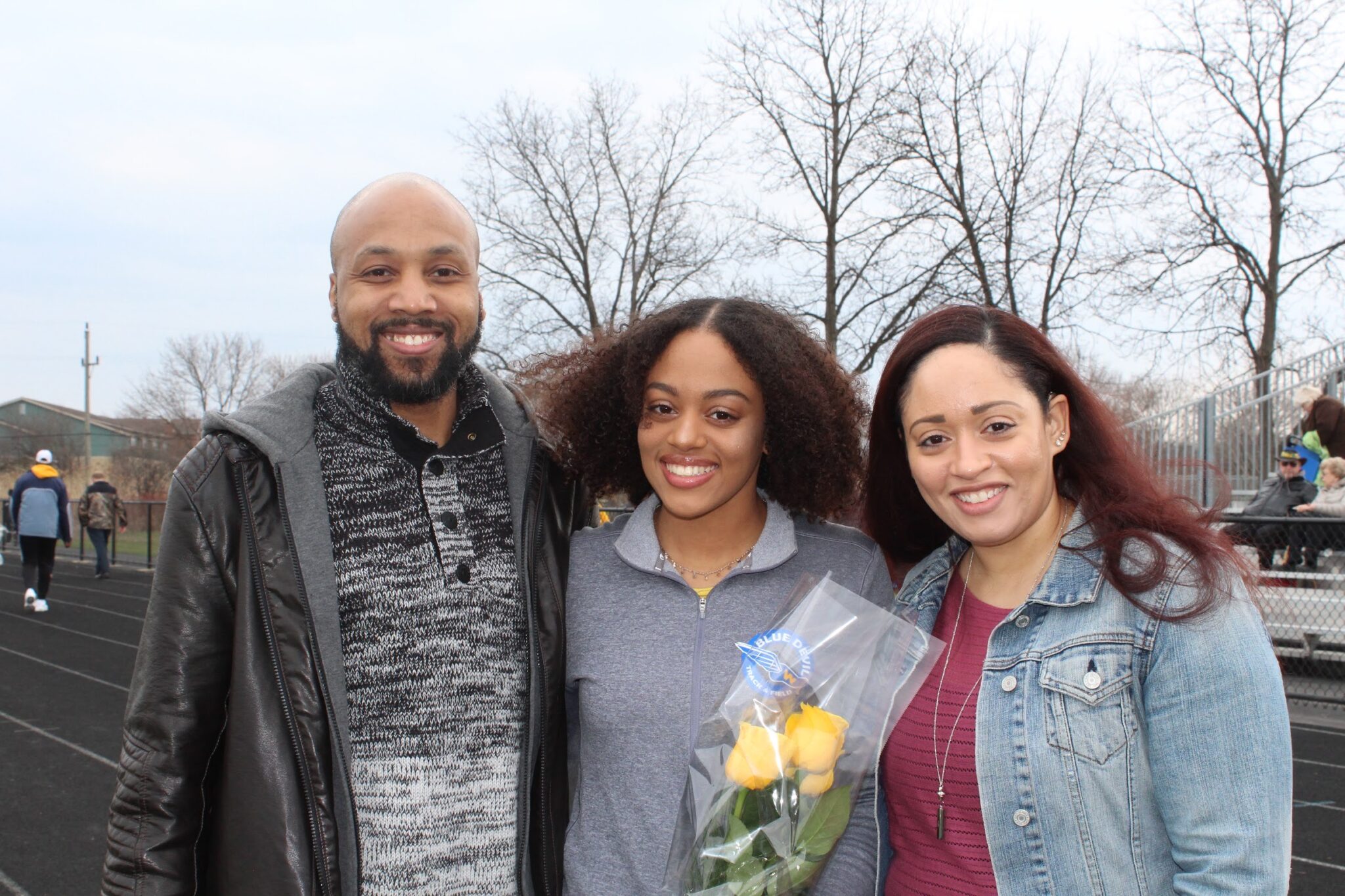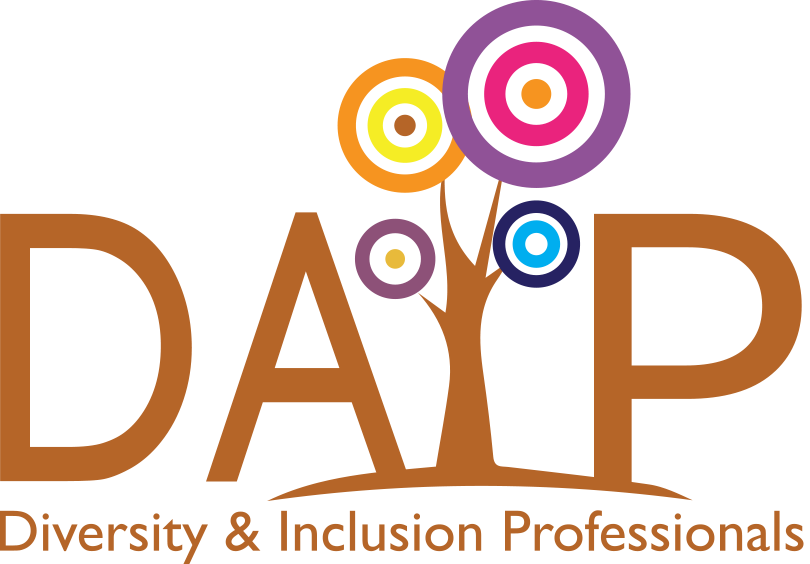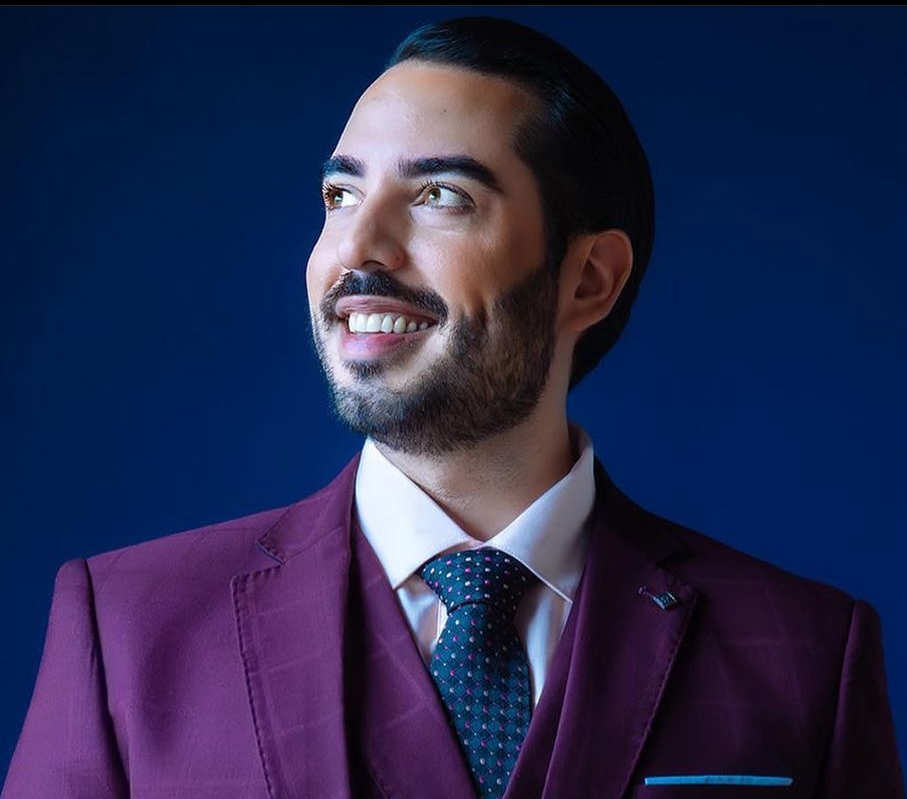
Brianna with her parents, Tyrone and Leiko Barnes.
This is part of a series of conversations facilitated by DAIP to elevate inspiring voices that historically have been marginalized.
Brianna Dominguez-Barnes interned with DAIP in Spring of 2023 just before she graduated from The College of the Holy Cross with a Sociology major and Deaf Studies minor. DAIP board member Sarah Courtemanche sat down with her to discuss her experiences with the Deaf rights movement. Their conversation has been edited for length and clarity.
(Sarah) Brianna, tell us about your background, and how you came to be such a passionate advocate for the Deaf community.
(Brianna) Both of my parents are deaf, so I am what’s known as a CODA—a child of deaf adults. I’m the oldest of three siblings, so I’ve always been an interpreter for my parents and am fluent in American Sign Language (ASL). I started the first ASL Club at my high school along with my sister, Shyla. I was very involved in the Deaf community during my time at Holy Cross, serving as co-president of their ASL club and a teaching assistant for a 100-level ASL course. I also interned with the Massachusetts Association of the Deaf, and had the opportunity to advocate for a Deaf Child Bill of Rights. This bill related to Deaf children’s rights in education, to ensure that Deaf children have the same opportunities to reach language acquisition benchmarks (in at least one language) at the same rate as hearing children. Research shows that at a certain age, acquiring a language becomes much more difficult. We all need one language to communicate in some way by that point, and if a child hasn’t developed a proficiency by that benchmark age, that child will almost never be able to completely recover from that gap in language skills. The legislation still hasn’t passed, but it was fascinating learning about the legislative process, and seeing how transformative this particular law could be for Deaf children.
(Sarah) From your advocacy work, do you think that this is something that should be enacted by the U.S. government at the federal level?
(Brianna) Absolutely! Nineteen states already have a Deaf Child Bill of Rights, and advocates in Massachusetts are working hard to make it the 20th state. If we care about education as much as we say we do in America, that starts with acquiring a language to receive that education.
(Sarah) What inspired you to get involved in this advocacy work?
(Brianna) It started with my experiences interpreting for my parents, and seeing the oppression and widespread inaccessibility that they face on a daily basis. Just a simple trip to the grocery store would require interpretation, and it made me realize that if everyone learned at least basic ABCs in ASL, the world would be a much better place for Deaf people. Advocating for sign language became a big deal for me initially so I wouldn’t have to interpret every single interaction that my parents had with someone outside our close circle. Most of my friends are not able to interact with my parents at all in the same way they do with other friends’ parents. It isolates them.
And I think people often don’t realize that the benefits of sign language extend beyond the Deaf community. Since ASL was my first language, I started communicating at six months old. Many hearing parents today choose to teach their babies sign language because it allows babies to effectively communicate at a very early age. I feel grateful to have this awareness. If it weren’t for my parents, I would not have these additional ways to communicate in my life, and would not have the privilege to be part of this community.
(Sarah) I’m sure your parents are incredibly proud of how you’ve embraced the Deaf community. What has their journey been like raising hearing children?
(Brianna) They’ve shared with me that when they were growing up, they were told repeatedly–by people in the education system, no less–that they wouldn’t make anything of themselves because of their language barriers. So they’ve been incredibly pleased to see me succeed in school with little guidance from them. My parents have always been so supportive and so proud.
During the most stressful times of isolation during the pandemic—like many other students—I struggled so much that they thought I might give up. After seeing me overcome those times of struggle, my dad was inspired to go back to school–twenty years after last being in school–and he’ll be earning his bachelor’s degree this December. It’s been incredibly special to share this journey with him.
(Sarah) Wow, that’s incredible! It’s so inspiring to see a family that is able to succeed despite the variety of barriers that can make it difficult. What helped your parents with the needs that they had with language acquisition and education? Can you share more about their journey?
(Brianna) Every family has different circumstances, strengths, and preferences—so learning can look very different for each person in the Deaf community. My mom went to a deaf school in NYC, and gained fluency in ASL. My dad was a military brat who moved all over the place and went to mainstream schools. So he was proficient in his writing abilities, and only learned English Sign Language, ESL. For those who may not be aware of the difference, ESL is basically signing that follows the same rules and grammar as spoken language, and ASL has its own grammar, its own way of forming thoughts and sentences. ASL is more widely spoken today, and ESL has become more outdated. To this day, my dad communicates more in ESL, and my mom in ASL—my parents each have two different avenues of how they access language.
When it came time for my siblings and I to go to school, they trusted the education system to do what it was supposed to do, and luckily it worked out. It’s fascinating how we can all access language very differently within a single family.
Sarah, from the work you’ve done, what do you think needs to be done to remove some of the barriers that families with children with disabilities face?
(Sarah) Through my work in various communities, I’ve seen how often laws and legislation can sometimes get in the way, causing additional roadblocks rather than helping families. Believe it or not, there can be discrepancies between federal and state laws, and that can be layered with additional policies at an even more local level (such as from municipal level committees). These layers of rules can cause discrepancies and roadblocks, and it can become very complex to interpret all of the rules, making it more difficult for families to get the services they need.
These are unintended consequences of well-intentioned policies, of course. But we need to make sure there is communication and collaboration across agencies to ensure this doesn’t happen. And we need to keep the language within legislation as broad and inclusive as possible, to include all possible needs that the community may be facing.
Brianna, because there are often gaps in knowledge about available services, could it be helpful for folks in HR or DEI roles to educate themselves so they can help their colleagues who need to understand the system and access needed support?
(Brianna) I think it really depends on the company—how big it is, and whether these professionals have the capacity to help their colleagues as part of their roles and responsibilities. If the answer is yes, I would encourage anyone trying to support in this way to start by referring back to what is actually included in the ADA law, and make sure that your company is adhering to it.
Also, most importantly, keep lines of communication open with employees—is there anything they need in order to succeed? How can you support and meet their needs? Everyone’s situation is different, so it’s best to ask people directly what they need to succeed. It seems most appropriate to regularly ask everyone what they need–giving all employees a chance to answer this question so you’re not singling out folks.
(Sarah) Such great advice. And outside of our professional roles, do you have any recommendations for how each of us can better support our family and friends who may face accessibility issues? How can we be better allies and advocates for our loved ones?
(Brianna) My advice would be to be aware of the people in your environment, and remember to question everything. Make sure that everyone is included, involved, and heard. If you notice someone keeping to themself and being left out, make sure you talk to that person. Just ask them directly how they are and what they need. People forget to ask that, and that short exchange can make a huge difference in creating more inclusive environments in all of your social groups.
(Sarah) What would you say to young people who might currently be facing similar struggles to yours? Any words of wisdom to share?
(Brianna) I’m not going to lie–being a CODA can be tough. It comes with its own unique blessings and challenges. But I’d remind them to be proud of who you are, despite the struggles! Going to college and meeting so many affluent kids with rich parents and expensive clothes, I initially just wanted to fit in and to hide pieces of myself. Sometimes when I was younger, I even remember wishing that I had hearing parents—so I wouldn’t be different. But that shame came from society not accepting deaf people as human beings. But I realized that being different can be a strength, something that makes you and everyone around you better. You become more aware, more inclusive, more resilient. So stick to what you know, find your people. And look for the blessings in your family. You have an amazing gift.
(Sarah) I love that advice—staying grounded in your truth and honoring your lived experience. We cannot hope for more for the young people in our lives. I have to ask–what’s next for you?
(Brianna) I just accepted a job offer and will be working with Allendale Association, a mental health facility, where I’m thrilled that I’ll have the opportunity to work with children with autism. Long-term, at some point I would love to go back to school and continue my education. My end goal is a Master’s degree, a Ph.D. in Leadership, and hopefully a book.
(Sarah) That’s incredible! So much to be proud of, and so much to look forward to! You are truly an amazingly accomplished young person. Congrats on the beautiful journey that your family has taken together, and on all that is ahead for you. I have no doubt that you’ll continue to create a considerable positive impact on everyone who comes into your circle! Thank you so much for sharing your story with us.
Want to learn more? Here are some resources related to the Deaf and hearing loss community.
- Learn about American Sign Language (ASL) at https://www.handspeak.com.
- Explore resources from The National Association for the Deaf.
- Explore articles on Deaf culture from Verywell Health.
- Read The Diversity of People with Hearing Loss from the University of Iowa Health Care to learn more about the differing needs and preferences of this community.

